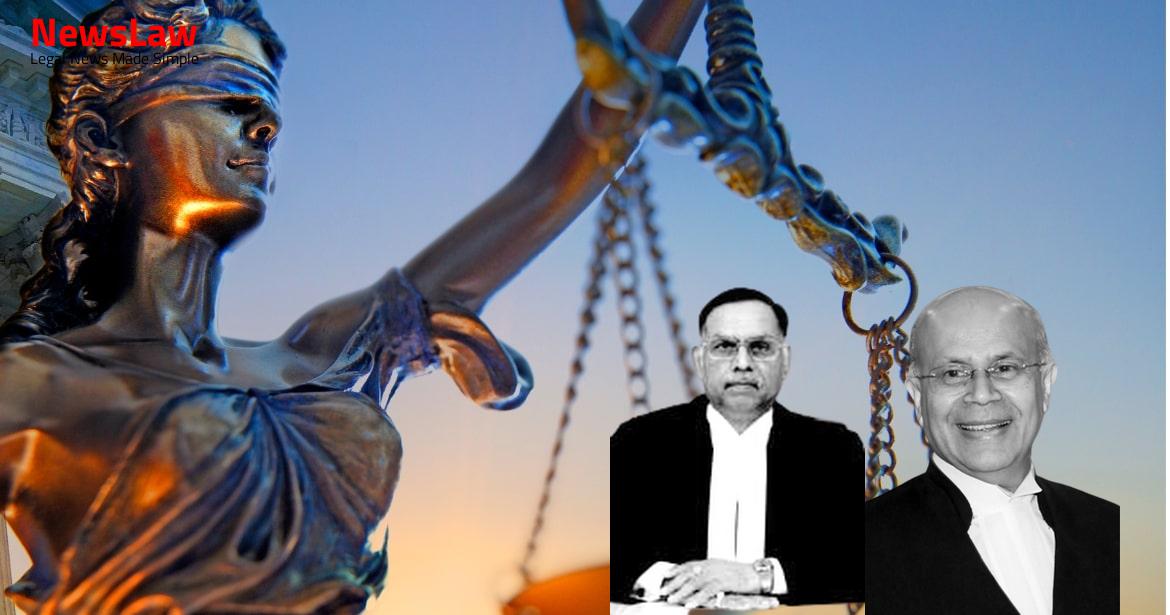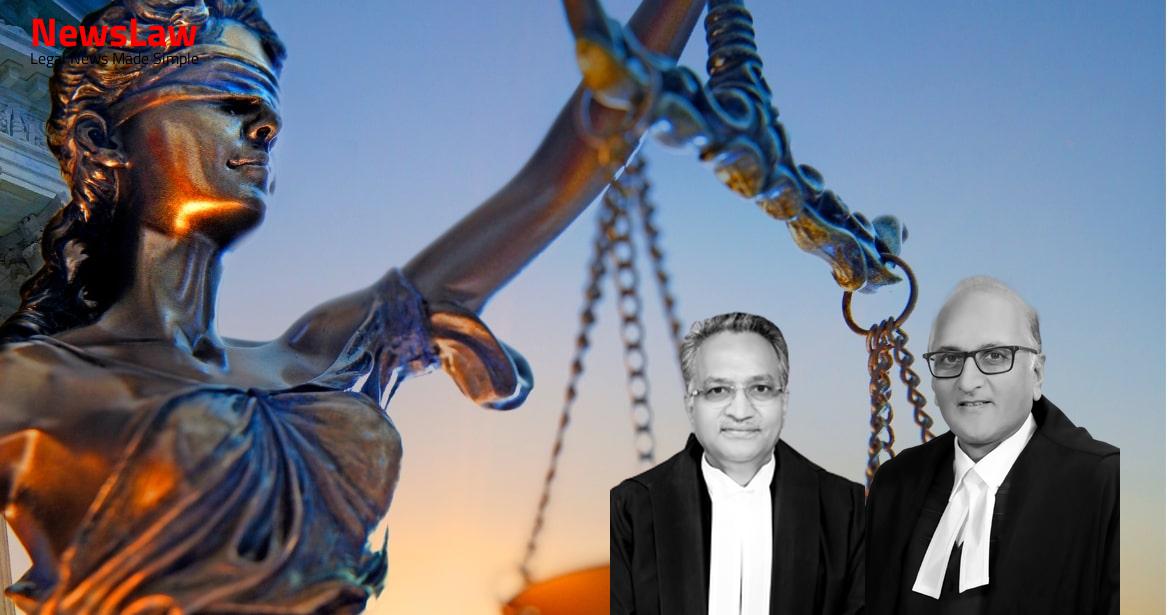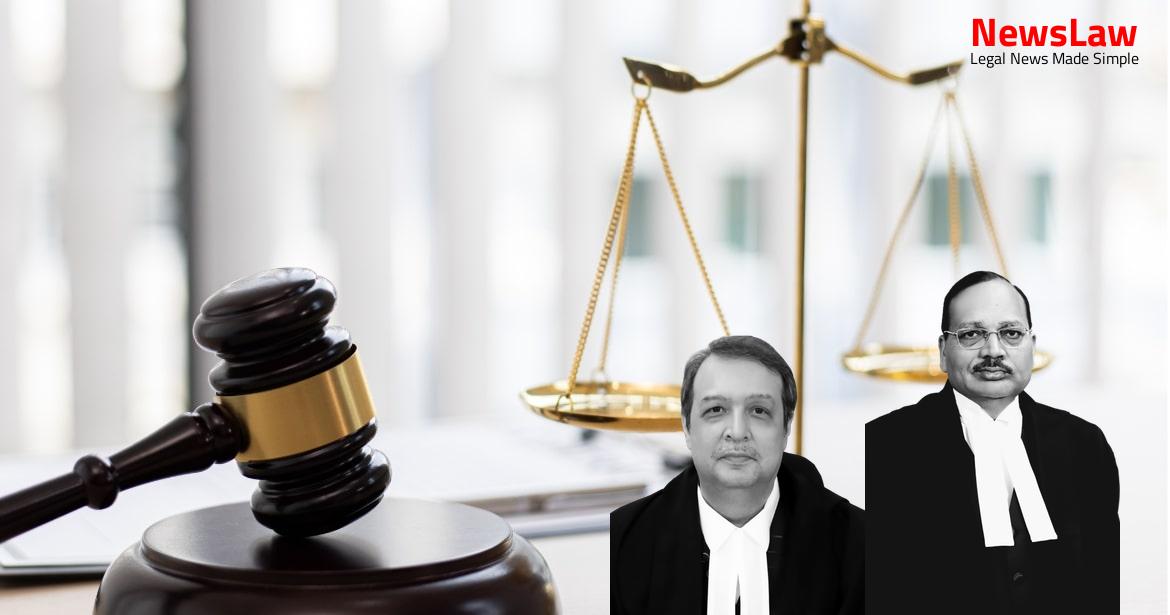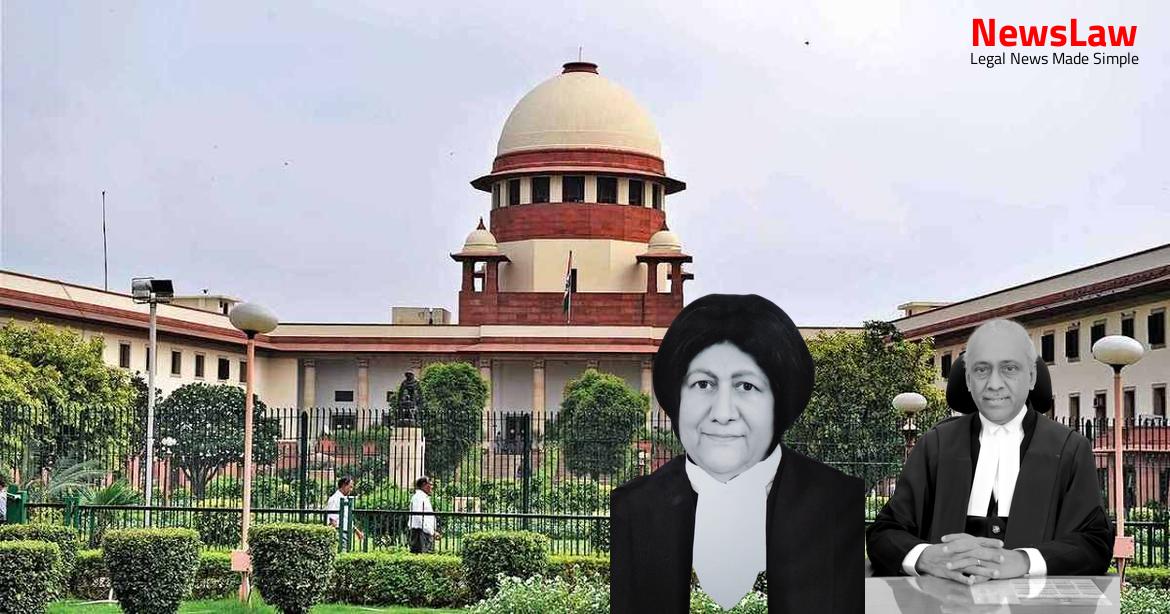In a landmark judgement, the Supreme Court of India has ruled in the case of Sajjad Quraishi v. Anwarul Haq Quraishi, where criminal proceedings were quashed. The court highlighted the malicious and mala fide nature of the complaint, with ulterior motives driving the initiation of legal action. Stay tuned to delve into the details of this significant legal decision.
Facts
- The appellant filed an application under Section 482 Cr.P.C. in the High Court to quash the proceedings of Complaint Case No.1 of 2017.
- The High Court rejected the application on 21.02.2018, leading to the filing of this appeal.
- The Sessions Judge summoned the appellants under various sections of IPC and the POSCO Act due to an altercation on 19.07.2016.
- The complainants allegedly filed frivolous complaints against the appellants and family members in various forums, including the Human Rights Commission and the Police Authorities.
- The Sessions Judge had previously rejected the complainant’s application under Section 156(3) Cr.P.C. on 29.08.2016.
- Complainant’s application was rejected by the Additional District/Sessions Judge due to insufficient grounds to register the case against the appellants.
- Police Station initiated proceedings under Sections 151, 107 and 116 Cr.P.C. in relation to the incident.
- High Court did not interfere with the rejection of the application but mentioned the availability of an alternative remedy through the Code of Criminal Procedure.
Also Read: Interpretation of Lease Agreement and Compulsory Registration
Arguments
- Police has initiated proceedings under Section 151, 107,115 Cr.P.C. against both parties to maintain peace.
- Complaint appears to be malicious and mala fide, with ulterior motives.
- Dispute over property between appellant’s father and complainant is ongoing with a pending Civil Suit.
- High Court upheld refusal to quash proceedings, despite no findings against appellant in the enquiry.
- Complaint is seen as an abuse of court process to settle personal scores and pressure settlement in property dispute.
- Incident alleged against appellant is deemed imaginary and false.
- High Court, under Section 482 Cr.P.C., does not assess truth of allegations or evidence at this stage.
- State of Uttar Pradesh filed Counter Affidavit with details of the complaint and enquiry report.
- High Court’s failure to consider sequence of events and fact situation is criticized.
Also Read: Enhancing Compensation and Modifying Sentences: A Legal Analysis
Analysis
- The rejection of an application under Section 156(3) Cr.P.C. does not prevent the complainant from filing a complaint under Section 200 Cr.P.C.
- The High Court did not consider the relevant facts of the case to determine if it falls under the categories as outlined in Bhajan Lal’s case.
- The complainant initiated criminal proceedings with a potential ulterior motive due to personal grudges.
- The presence of a long-standing property dispute between the complainant and the appellant’s father existed before the incident of July 19, 2016.
- The police had conducted proceedings under Sections 151, 107, and 116 Cr.P.C. on the day of the incident to maintain peace between the parties involved.
- The Court noted discrepancies in the allegations made by the complainant, casting doubt on the entire incident.
- The High Court’s failure to delve into the materials on which the final report was submitted by the Investigating Officer was highlighted.
- The High Court has the jurisdiction under Section 482 Cr.P.C. to quash proceedings if it finds abuse or if justice requires quashing.
- Category 7 of State of Haryana v. Bhajan Lal allows quashing if the proceeding is malicious and mala fide.
- Quashing can be justified if the allegations in the FIR are absurd or do not disclose any offense.
- The purpose of the inherent powers of the High Court is the advancement of justice.
- Abuse of the court’s process should be prevented to avoid harassment or oppression in judicial proceedings.
- The Court discussed the jurisdiction of the High Court under Section 482 of the CrPC.
- Highlighted the various provisions of the Code under Chapter XIV and the principles of law related to the exercise of extraordinary powers under Article 226 or inherent powers under Section 482.
- Listed categories of cases where such power could be exercised to prevent abuse of court processes or secure the ends of justice.
- Examples include situations where allegations do not constitute an offense or where the FIR does not disclose a cognizable offense.
- Emphasized that guidelines for exercising such power may not be precise or rigid, and an exhaustive list is not possible due to the varied nature of cases.
- Present case falls under category VII of Bhajan Lal’s case.
- High Court failed to exercise jurisdiction under Section 482 Cr.P.C. in quashing the criminal proceeding initiated by the complaint.
- Criminal proceedings against the appellant would mean allowing a maliciously instituted proceeding with ulterior motives to continue.
- Allowing such a criminal proceeding to go on would be an abuse of the court’s process.
- The appeal is allowed by the Court.
Also Read: SPML Infra Limited vs. Govt. of Arunachal Pradesh
Decision
- The criminal proceedings initiated by Complaint Case No.1 of 2017 are quashed.
- The case was filed by Sajjad Quraishi against Anwarul Haq Quraishi.
- The judgement results in the termination of the legal action taken in this matter.
Case Title: AHMAD ALI QURAISHI Vs. THE STATE OF UTTAR PRADESH (2020 INSC 112)
Case Number: Crl.A. No.-000138-000138 / 2020



